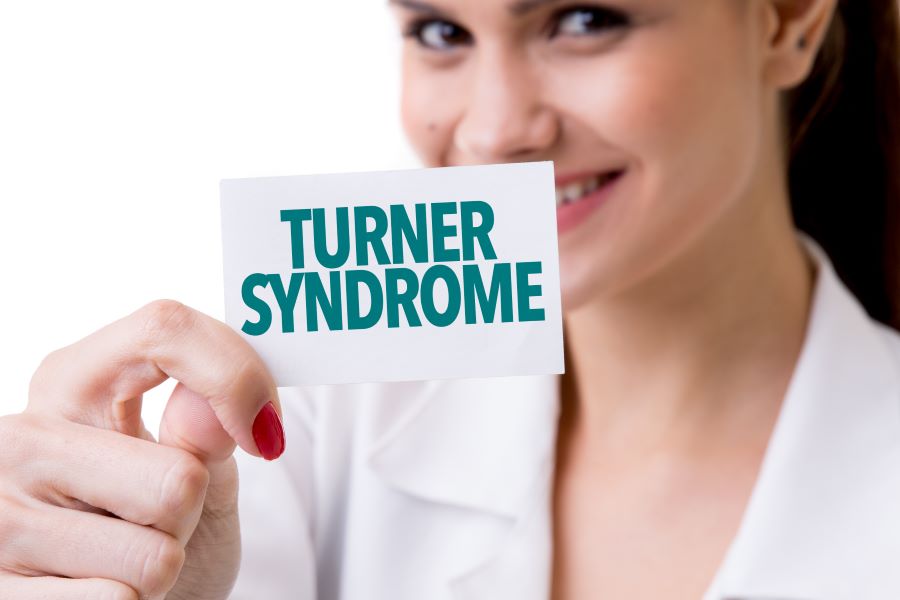What is Turner Syndrome?


Turner syndrome (TS) is a chromosomal condition that affects 1 in 2,500 newborn females. About half are diagnosed by a pediatrician within the first few months of life because of characteristic physical features. The other half is usually diagnosed in early elementary school or adolescence because of unexplained short stature or delayed puberty or menarche.
For a female to be diagnosed with TS, she must be missing all or part of the second sex chromosome as confirmed by a karyotype, which is a specialized chromosome analysis. People typically have two sex chromosomes in each cell: females have two X chromosomes, while males have one X chromosome and one Y chromosome. TS results when one normal X chromosome is present in a female’s cells and the other sex chromosome is missing or incomplete.
Most cases of TS are not inherited. Usually, the chromosomal abnormality occurs randomly during the formation of reproductive cells (eggs and sperm) in one of the affected child’s parents. It is estimated that up to 1-2 percent of all conceived pregnancies have a chromosomal abnormality consistent with TS, but the majority of these (99 percent) spontaneously abort, usually during the first trimester.
Many females with TS have extra skin folds on the neck (webbed neck), a low hairline at the back of the neck, puffiness or swelling (lymphedema) of the hands and feet, skeletal abnormalities, or kidney problems. Most with TS are unable to have children because they have missing or poorly formed ovaries. Roughly 20-40 percent of individuals with TS are born with a heart defect, such as a narrowing of the main artery leaving the heart (coarctation of the aorta) or abnormalities of the valve that connects the aorta with the heart (the aortic valve). Complications associated with these heart defects can be life-threatening, especially if not diagnosed early in the newborn period.
A majority of girls and women with TS have normal intelligence. Some have developmental delays, nonverbal learning disabilities, or behavioral problems, although these characteristics vary greatly among affected individuals. Many females with TS lead relatively normal lives.
In TS, growth hormone (GH) therapy is a standard treatment for short stature. A cardiology evaluation is recommended for any newly diagnosed TS patient. Sex hormone replacement therapy is often available as a girl reaches adolescence. The American Academy of Pediatrics and the Turner Syndrome Study Group have developed guidelines for pediatricians regarding proper health supervision and maintenance of children with TS.
Sources:
- The Journal of Clinical Endocrinology
- Care of girls and women with Turner syndrome: a guideline of the Turner Syndrome Study Group.
Frías JL, Davenport ML; Committee on Genetics and Section on Endocrinology - Health supervision for children with Turner syndrome
- Pediatrics
- 2003 Mar;111(3): 692-702.
Loscalzo ML - Turner Syndrome
- Pediatrics in Review
- Vol
- 29, No
- 7
- July 1, 2008
- 219 – 227.
National Library of Medicine (US) - Turner syndrome.
Powered by Bundoo®












































